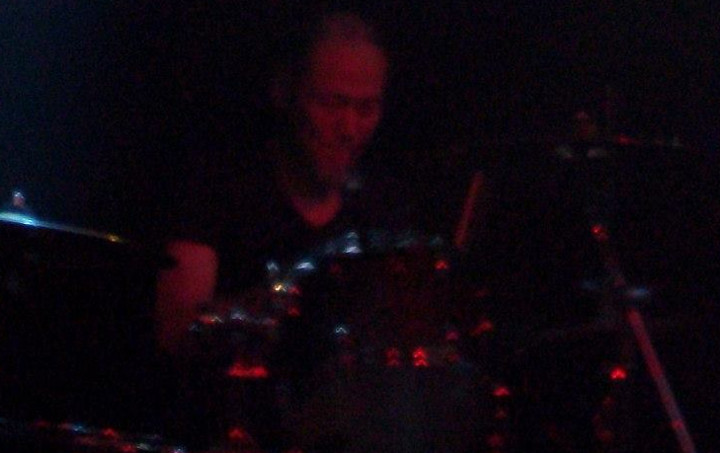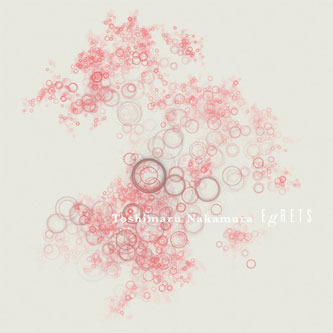Boris have been ploughing a wide and varied furrow through the field of guitar-based music for more than quarter of a century. Dave Pettit has taken on the task of listening to all of their studio albums – here is part one of a series of reports as to what he found within them.
Absolutego (1996)
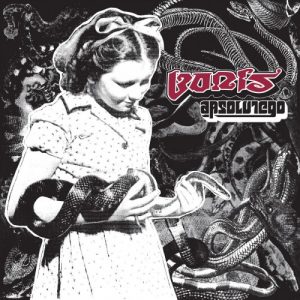 Boris’s studio debut, released in 1996, this is a one track album, just over sixty minutes in length. While Boris may have taken their name from the Melvins track, and have their roots in the Tokyo hardcore punk scene, this album / track is very much in the ultra-heavy drone metal camp, drawing particular inspiration from US band Earth.
Boris’s studio debut, released in 1996, this is a one track album, just over sixty minutes in length. While Boris may have taken their name from the Melvins track, and have their roots in the Tokyo hardcore punk scene, this album / track is very much in the ultra-heavy drone metal camp, drawing particular inspiration from US band Earth.
The vocals give way, and that four-note bassline starts to dominate the mix again alongside further squalls of feedback. This is full on drone again and at around forty-five minutes the bassline cuts out leaving just a pulsing feedback loop. All in all this is heavy as fuck.
A very good, bold, debut from Boris. Boris would explore this sonic territory again in albums such as Amplifier Worship (1998), Feedbacker (2003) and Fade (2022), among others.Note the album would be remastered and re-released in 2001 on Southern Lord, slowed down slightly(!) and adding a second track “Dronevil” (no relation to their album of the same name released in 2005). There is also another track called “Absolutego” on their album Dear (2017); again, no relation to this album.
Heaviness rating 9/10 Overall 7/10
Amplifier Worship (1998)
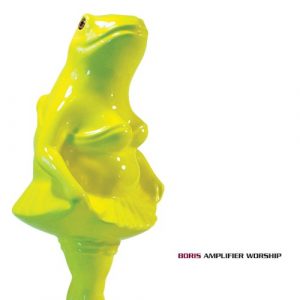 Starting with a looped vocal sample and some more amplifier hum, this album kinda starts where the previous one left off.
Starting with a looped vocal sample and some more amplifier hum, this album kinda starts where the previous one left off.
Then “Hama”. I’m not sure if “Hama” is Japanese for hammer, but it bloody well should be. Tempo is up here, it’s almost in Motörhead territory. Loads of stuff happening on this track. While “Huge” may have been pointing back to the first album, “Ganbou-Ki” and “Hama” are pointing directly to Boris’s future. “Hama” finishes as hardcore as it began.
“Kuruimizu”, the next track, is another barn-stormer, kicking in the doors and taking no prisoners. Moshing, head-banging madness. Wata plays one hell of a mean riff on this track. To be fair it does break into an almost ambient / slowcore section around the middle, but at fifteen minutes long it has all the space it needs to do this without losing anything.Final track on the album, “Vomitself”, is a return to heavy drone metal and one hell of a (simple, three chord) crushing riff. Heavy heavy HEAVY.
This is a cracking album and a big step up from the debut. Lovely stuff. Note this is the first album without original drummer Nagata, with Atsuo taking up the sticks.
Heaviness rating 8/10 Overall 8/10
Flood (2000)
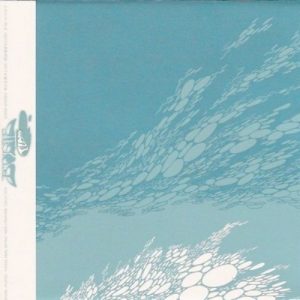 So to Flood, with it a literal sea change in direction from Boris, and a statement that the band will never be restricted by the limits of genre or expectation.
So to Flood, with it a literal sea change in direction from Boris, and a statement that the band will never be restricted by the limits of genre or expectation.
The album’s opening movement, “Flood I”, starts with a simple, repeated picked riff, overdubbed once, slightly out of time, suggestive of everyday life. Even that though can be disconcerting after a while. There is a term ‘semantic satiation’, where a repeated phrase or word starts to feel like it is losing its meaning, or even starting to sound like something else. That very much reminds me of what happens here. Tonal satiation perhaps?
The small variations in the repetition start to sound like rivulets and streams finding new pathways, new directions. But around the time this is happening, an ominous crashing percussion makes its presence felt. This builds slowly, increasing in frequency, like heavy surf breaking on the shore. Again and again it builds, discordant and arrhythmic. I swear to god, towards the end of the movement, as the riff is finally subsumed, I can hear the roars of an emerging kaiju as it closes on the beach.“Flood II” starts with a very chill keyboard melody, two chords repeated, backed by a simple drum pattern and, I think, Wata playing guitar with an electric violin pick, producing a mournful melody over the top. This is beautiful, blissful stuff, though it’s also quite melancholic. Whatever the ominous presence is from “Flood I”, it’s still around here. There is also some lovely simple guitar that comes in around half way, slowly increasing in complexity, building to a fuzzy extended solo.
“Flood III” starts immediately when the solo stops. Like “Flood I” the opening of “Flood III” is dominated by a simple repeated guitar melody / riff, but we soon have the addition of some vocals. These presage some heavy distorted guitar chords that themselves presage a section of heaviness more reminiscent of Boris’s first two albums. There is a positivity in this part that perhaps counterpoints the melancholy of “Flood II”, with soaring vocals accompanying the crashing cymbals and unrestrained guitar. Determination against the odds perhaps? Whatever, it’s very cool.Despite the heaviness, this movement still retains the ambient leanings of the previous two. The listener can slow headbang with this one though, as they float in the sensory deprivation tank. The initial guitar melody continues to the end, though beefed up to full-on heavy droning riff, accompanied by the distorted squall of feedback.
The noise suddenly cuts, the riff continues, now on bass, and some pulsing electronics swirl in the background. And so we move to “Flood IV”. This is full-tilt post-rock now. This track / movement even brings Labradford’s album Prazision to mind. Don’t let that sound like faint praise; it isn’t. Boris, if they are taking an influence, are very much running with it, making it their own and fitting it into their own sonic ecosystem.We’re definitely back in the deprivation tank on this one (though headbanging is not really on the cards. Head nodding maybe). The sounds vary and shimmer, constantly moving, before slowly fading, into silence. Wow, what a trip. Amazing.
I’m not certain how much of a story I could really get out of this album. Is there a narrative the listener should be picking up on? I’m not sure, but I’ll tell you this, if there is one album that Boris have made that suits lying on a beach watching the sun sparkle off the water (probably while being fucked up on methadone), it’s this one.Heaviness rating 5/10 Overall 8/10
Heavy Rocks (2002) – also referred to as Heavy Rocks Orange
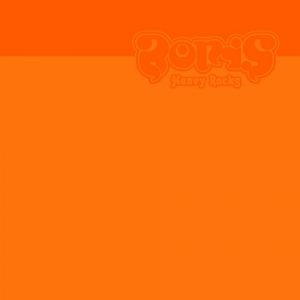 And now, as they say, for something completely different.
And now, as they say, for something completely different.
Opener “Heavy Friends” kicks off in suitable fashion. Ably abetted by guitarist Lori S of Frisco stoner metal merchants Acid King, the track is filled with sludgey, groovy riffs, pounding doomy drums, and wailing vocals. Crushing basslines and esoteric samples provide accompaniment.
From this glorious melange, Wata lets fly with a soaring, blinding solo. Ride free motherfuckers. Into the heart of the sun. Or something. Things only go upwards from there, with the almost proto-thrash of “Korosu” and “Dyna-Soar”. Think Stooges, MC5, Blue Cheer sped up to double speed. Hell, it’s not a million miles away from what Hawkwind would have sounded like if Lemmy had stayed in and forced everyone else to do vast amounts of amphetamines. Not a lot changes with following track “ワレルライド”. Galloping riffs fight for space with frenzied vocals and lot’s of “Oh Yeahs!”. This is rock ‘n’ roll to the max and quite frankly is leaving me breathless.The next track, the appropriately titled “Soft Edge” reigns things in significantly, allowing the listener to regroup somewhat. Essentially just guitar, bass and feedback swirling around in a psychy mix, this song is a short one, coming in at under four minutes. R&R as opposed to r‘n’r. Make use of it…
Because the adrenochrome insanity is back with the instrumental “Rattlesnake”, another short one, but one that is dripping with venom (see what I did there?). Soon behind us, this one gives way to heavy psychrock / proto-metal masterpiece “Death Valley”. Slower than most of the stuff that precedes it and more in line with “Heavy Friends”, this one is heavy as fuck. Think Mountain but more intense, with a bit of Acid Mothers Temple thrown in for good measure. It’s also got a gorgeous, gorgeous riff. In case you can’t tell, I fucking love this song. Befitting its truly epic status, the track is the second longest on the album, clocking in at over six minutes. Following “Death Valley” is “孤映”, more slinky, sleazy, Stooges–style debauchery. The speed is cranked up again and things rattle along. As with “ワレルライド”, the vocals are peppered with “Yeahs!” and the vocalist (Takeshi, I believe) is obviously having a great time. For the next and penultimate track, “鐘”, things slow down, tune down, and settle into a sludgey groove with untuned radio whistles accompanying an almost motorik riff. This is the longest on the album, but weirdly feels a lot shorter.Final track is “1970” and is the most exquisite homage to early ’70s proto-metal / metal you will ever hear. Great bass solo as well, if somewhat overshadowed by Wata’s even better guitar solo that follows after.
What can I say. This is a glorious album. If it does serve as a recognition of Boris’s influences, it also serves as a statement of intent. Like all the albums that precede it, it covers areas that will be traveled again by the band, sometimes better, always at the very least as good. But this is the first one where they completely throw off any restraint. And it is all the better for it.And having not been available for ages, Heavy Rocks Orange is now on Boris’s Bandcamp at last.
Heaviness rating 8/10 Overall 9.5/10
Akuma No Uta (2003)
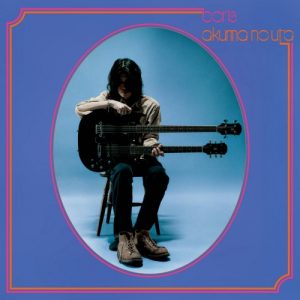 Note that this review is for the 2019 US re-release by Third Man Records, which is a CD edition with the same track listing and cover as the Southern Lord re-release of 2005 — but with the extended “Introduction” (which was from the Southern Lord vinyl only edition). Nothing like keeping it simple, eh?
Note that this review is for the 2019 US re-release by Third Man Records, which is a CD edition with the same track listing and cover as the Southern Lord re-release of 2005 — but with the extended “Introduction” (which was from the Southern Lord vinyl only edition). Nothing like keeping it simple, eh?
But then Orange Boris suddenly kick the doors in, yelling ‘We’re back, motherfuckers!!’, and “Ibitsu” hits the speakers. More speed-addled proto-metal, mixed in with a bit of hardcore punk and rock ‘n’ roll vocal histrionics. It’s awesome. And very fast with some seriously philthy, d-beat style drumming going on.
And like the previous album, Boris pair one thrasher with another. Track three is called “Furi” and it literally does exactly what it says on the tin. Or cover. You know what I mean. I’m making another assumption that this is a pun on the English word “fury”, much like “Hama” off Amplifier Worship. But I may be wrong. Either way, it’s another fast, aggressive slice of proto-metal, and absolutely steams along.At this point Boris take a slight detour with “Naki Kyoku”, the fourth song on the album. They’re still in the early seventies here, but this track takes its cues more from Led Zeppelin than Blue Cheer. And it’s an epic, over twelve minutes in length. For once the instruments remain at a fairly sedate, easy going pace, riffs are allowed space to breath, and the whole sounds more organic than much of what we’re heard before from the band. Wata’s guitar is a lot cleaner than anything coming from it since parts of Flood and in this instance that’s not a criticism.
Nevertheless, there is still a psychedelic feel to the music, with the occasional twinge of feedback and some interstellar electronic noodling in the background. Around nine minutes in, the effects pedals are triggered and things start to distort and break down, while the music itself climbs higher, reaching a climax as the song ends. Epic indeed, and one of my favourite Boris tracks so far. “Ano Onna No Onryou” is the next track and this is, for Boris, a fairly routine chunk of proto-metal. And it’s still brilliant, a highlight being an incendiary solo / freak-out from Wata. The main riff is very Funhouse-era Stooges and that’s no bad thing either.Last up is the album’s title track. Again a slight change in direction, this one starting off very much in the doom / stoner metal mould. It starts in fact in quite a similar vein to “Heavy Friends” off Orange, but then just gets a load heavier. “Heavier Friends”, if you will. But without the friends.
And then they neck the last of the bennies, hit a higher gear, kick out the lights and speed off into the sunset, the track suddenly speed-freaking along like a (more) demented early Motörhead. Not sure if their amps were starting to melt at this point, or my speakers are about to blow, but this track can pretty much start a mosh pit in an empty room. Blistering. And then, to a tiny squeal of feedback, it’s over.I may be starting to repeat myself here, but what a bloody album. Probably Boris’s most diverse record up to this point, but nothing feels out of whack, every track has its place. Absolute blinder.
And the whole album was recorded in one analogue take as well. Blimey. To be fair it’s only thirty-nine minutes long (or thirty-two if you have the original Japanese release) but even so. Interesting fact is that the later version was exactly that long to match the Nick Drake album Bryter Later, the cover of which is parodied on the Southern Records release.Heaviness rating 8/10 Overall 9.5/10
Boris At Last -Feedbacker- (2003), henceforth referred to as Feedbacker
If you’re expecting Feedbacker to be another heavy-as-fuck drone metal monster, especially after viewing the picture of Wata lying in a pool of blood on the cover, then you’ll be in for a bit of a surprise. Yes, there is some of that here, and a bit of guitar freak-out; but this album in many respects bears closer comparison to Flood.This is far more of a post-rock / ambient work building across five movements (like Flood) with fairly minimal vocals. I’ve split this one down into the individual movements as it made more sense when I was listening to it.
“Feedbacker I” – This starts very quietly, an almost imperceptible sound slowly comes in. Shimmering. Before a single sustained droning chord washed in amplifier hum. Then the chord is repeated, and again. Slow. Not heavy as such, but heavily distorted.There is feedback but it’s barely there. There is a slight increase in complexity as things go on, but the track is largely defined by its shimmery expansiveness and simplicity. Very minimal, very ambient. “Feedbacker II” – A slow melancholic riff is played over a single cymbal and drum. A vast icy landscape comes to mind, rolling wintry peaks, vast icebergs and high cirrus cloud, and that’s possibly because this is a bit redolent, in my mind, of Windy And Carl‘s album Antarctica, but starker, with less warmth.There is a similar sense of geography and atmosphere though. Wata’s guitar starts to dominate about midway, with soaring solos accompanied by yearning vocals. It’s not far off what I’d call a heavier shoegaze. Rather than a cathedral of sound, think more a Fortress Of Solitude of sound. The track culminates in a blur of thrashed drums and more feedback which leads directly into…
“Feedbacker III” – Okay, the bad boys are back in town, at least initially. A chunky riff accompanies the start of this slightly more conventional track as it disentangles itself from the previous movement.A scuzzy solo starts to weave itself around the chaos, then breaks free into some clearer space, which gives Takeshi a bit of room to explore his bass before a vocal segment. This initiates a soaring section where everything seems to come together again with a sense of urgency. A driving rhythm propels the track towards its end point, where things start to break down again into chaos, distortion and sustained feedback which takes us into…
“Feedbacker IV” – And this is where the feedback truly starts to dominate the album, an instrument in its own right, swirling and swooping over the simple drum pattern. At nine minutes and fifty-two seconds, this is the second longest track on the album, and it’s pretty much all feedback. And it’s beautiful. The movement eventually almost fades out to more amplifier hum. But not quite. “Feedbacker V” – This starts not a million miles away from “Feedbacker II”, but with a lingering layer of feedback from the previous movement. It really is a kind of reversal of what we’ve had before, the short track finishing much where “Feedbacker I” started in a very minimal space.And that’s Boris at Last -Feedbacker- completed. Really everything from the peak at the end of “III” is a reversal, taking place through a kind of wormhole, engineered by the feedback of “IV”. It’s quite something. It’s almost a shame to have dissected it quite like this as it really doesn’t do it justice.
However, I do think it would be difficult to review in any other way. I can see why reviewers apparently avoided it at the time though. I don’t think it’s the best album they’d made up to this point, but it is very good indeed. Listen to it and when you do, try not to think too much about it while you’re doing so.Heaviness rating 6/10 Overall 7.5/10
-End of part one-


